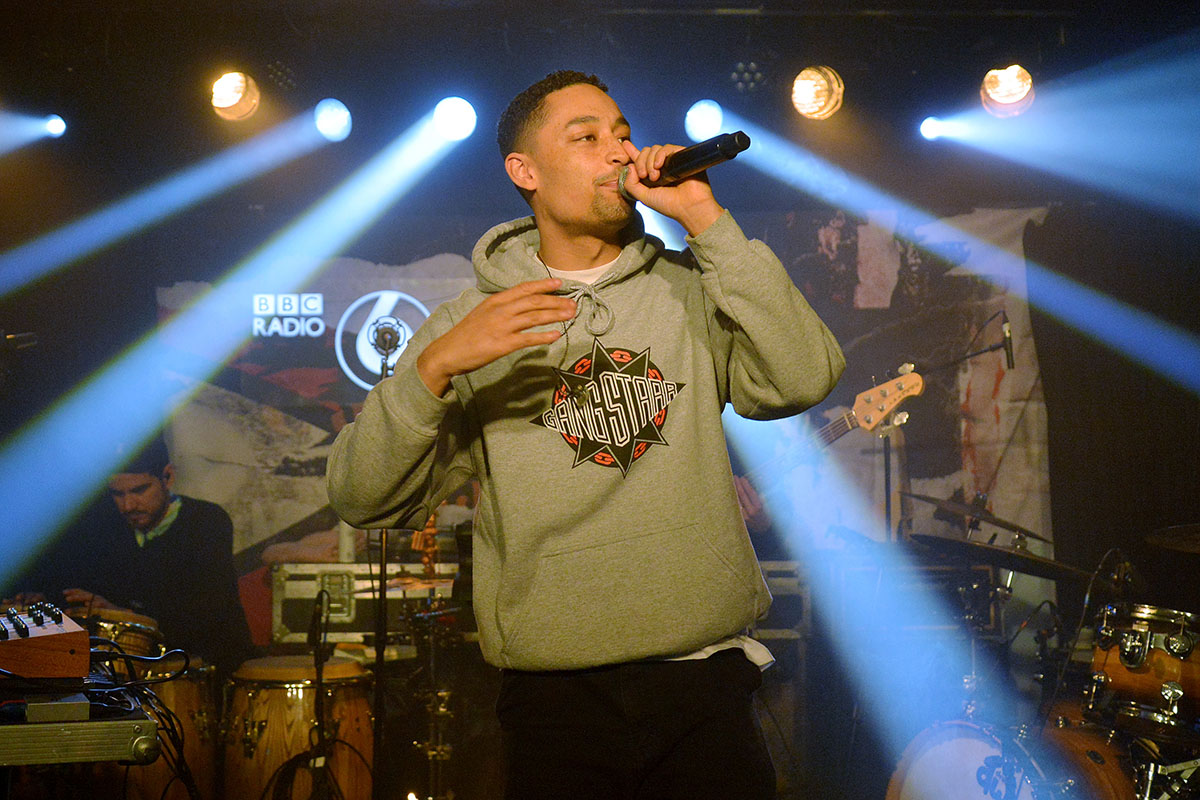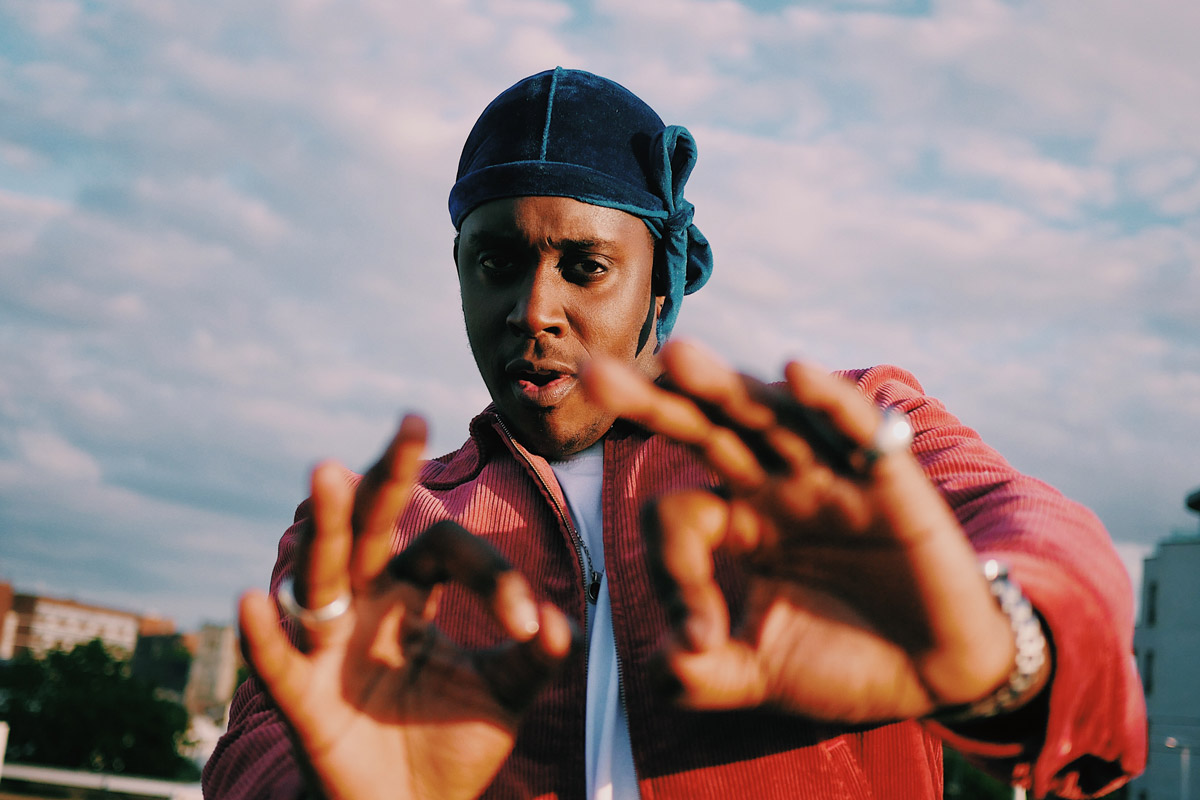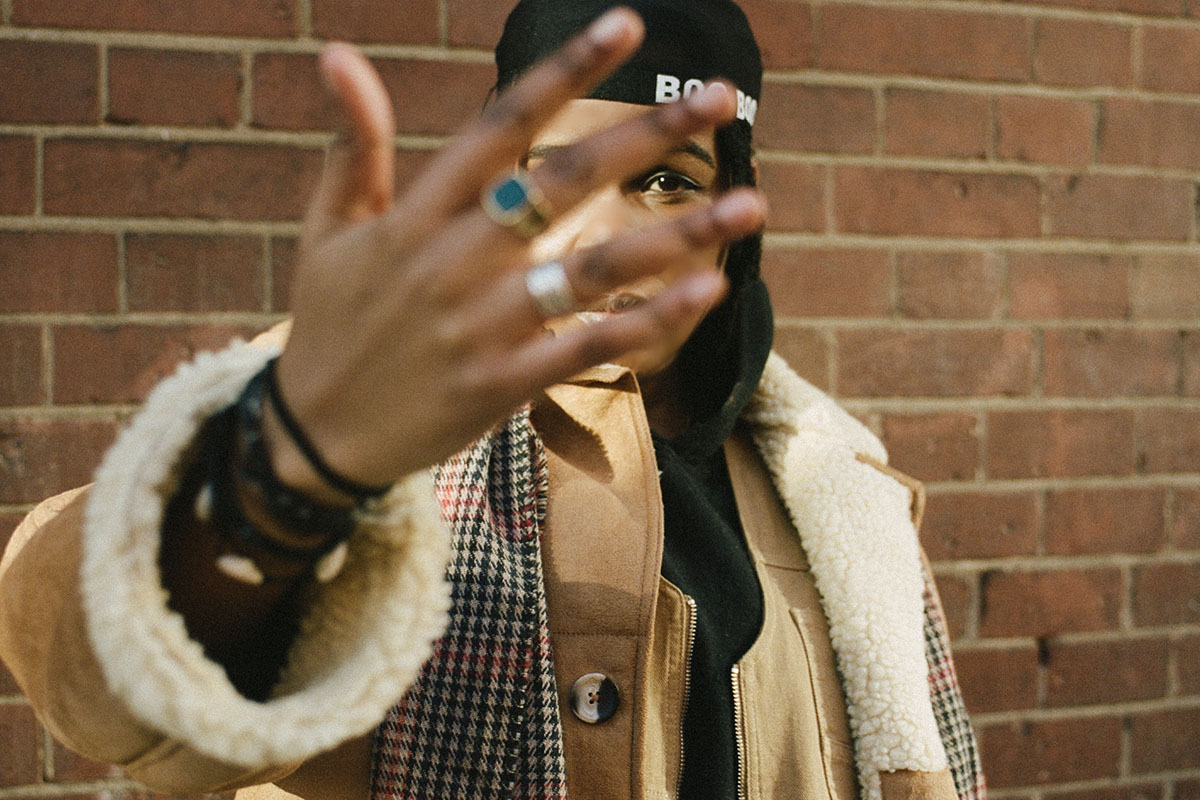UK hip-hop is at an all-time high. In 2021, the British Phonographic Industry (BPI) reported that, of all single-track consumption in 2020, 22% came from the hip-hop and rap section, up from 21.5% in 2019, making it the second most consumed genre in the country after pop.
Within that genre itself, over a third (33.6%) of consumption accounted for came from British artists. Despite live shows being halted for the foreseeable future and sizable chunks of artist income down the proverbial drain, artists have buckled down, worked on their craft and kept their release schedule rolling.
It now speaks volumes, according to the BPI’s 2021 report published earlier this year, that “while superstars such as Drake and Eminem have long been among the genre’s most successful artists, here tracks by S1mba, AJ Tracey, Dave and Headie One all racked up more than 50 million plays in the UK alone in 2020.
"All those artists – along with others such as Bugzy Malone, M Huncho and Young T & Bugsey – were among the upper echelon achieving over 100 million UK plays across their catalogues last year.”
Evolution of the genre
UK hip-hop’s current success is incredible when you consider its humble beginnings. Emerging in the early 1980s, America was a key point of reference for this country’s fertile communities, who met up at house parties and nightclubs for cultural exchange.
Consequently, the first generation of MCs, such as Dizzy Heights, Bo Kool and Derek B, rapped in American accents in simplistic rhyme schemes and over production ranging from the funk-leaning sounds exhibited by Afrika Bambaataa to Run-DMC-inspired drum-heavy production. Rapping in an American accent was a mechanism when very few British MCs existed to strike familiarity with fans of US rap.
 Loyle Carner on stage at the BBC Radio 6 Music Festival at Camden Dingwalls, London in March 2020. © Jim Dyson / Getty Images
Loyle Carner on stage at the BBC Radio 6 Music Festival at Camden Dingwalls, London in March 2020. © Jim Dyson / Getty Images
Crucially, later MCs like the London Posse and the Demon Boyz would use their natural speaking accents when rapping, the first step towards the autonomy we see today. This would lay down the path that the likes of Roots Manuva, Blak Twang, Ty, Skinnyman, The Streets and The Mitchell Brothers would walk by the turn of the century.
Lyrically adept and braggadocious on occasion, they injected their own personalities, stories and consciousness into their raps, addressing the ills of society often over mellow, sometimes melancholic production made on software such as Fruity Loops and eJay. The culture was growing, but the advent of grime in the early noughties would change everything.
A wholly British invention, the new sound fused UK garage, dancehall and jungle to create full-throttle instrumentals at 140 BPM, spawning legendary MCs such as Dizzee Rascal, Wiley, Skepta, Kano and D Double E, who brought a mixture of intense flows, vivid storytelling and lyrical prowess seldom seen before.
UK hip-hop in the present day
UK hip-hop has continued to splinter into myriad new sub-genres, such as UK rap, UK drill and Afroswing. Most recently, UK drill, a combination of trap, UK rap and US drill music, has taken grime’s mantle as the sound of the streets, trading tongue-twisting lyricism for ominous road tales over rampant, energetic and domineering production.
From this scene, the likes of Headie One, 67, Digga D, Loski, Unknown T and Skengdo X AM have emerged as fixtures. Meanwhile, Afroswing fuses the vibrancy of Afrobeats with the grit of UK rap for danceable, chart-ready anthems by the likes of NSG, MoStack and Hardy Caprio.
Which brings us to the present day, in which artists are playing their part in a burgeoning movement. Commercially, the likes of Stormzy (twice), Dave and Nines have now reached No.1 in the UK Albums Chart for their albums Gang Signs & Prayer and Heavy Is The Head, Psychodrama and Crabs In A Bucket respectively, while South Londoner Dave’s 2018 single Funky Friday became the first UK rap song to enter at No.1 on the Singles Chart.
We’ve been blessed with some of the most exciting music over the past year alone. Artists have been able to work on their craft a lot more during the lockdown season, which has helped to boost what they were already doing before it.
Stormzy made further history in 2019 when he became the first British rapper to headline the Pyramid Stage at Glastonbury Festival, a watershed moment transcending the rap scene itself.
UK rap has also been recognised to a greater degree critically; Skepta and Dave both picked up the prestigious Mercury Prize for their albums Konnichiwa and Psychodrama in 2016 and 2019. The likes of Stormzy, Kano, J Hus, Ghostpoet, Little Simz, Loyle Carner and slowthai have also been nominated. In 2018, GSAP became the first British rap album to win the BRIT Award for Album For The Year, followed in 2020 by Psychodrama.
Joseph ‘JP’ Patterson, editor-in-chief at Complex UK and Trench magazine, and an authority on UK Black music, is revelling in this golden moment for the scene. “From UK drill and Afroswing to road rap, we’ve been blessed with some of the most exciting music over the past year alone,” he says.
“Artists have been able to work on their craft a lot more during the lockdown season, which has helped to boost what they were already doing before it. What’s also exciting is that most of the artists getting mainstream recognition haven’t created music for that. They’re doing it their own way, and this is what they have attracted, which is how it should be.”
 Barney Artist is thankful for the doors that UK rap artists before him have opened, and has taken the opportunity to keep productive in lockdown. Photo credit: Chux.
Barney Artist is thankful for the doors that UK rap artists before him have opened, and has taken the opportunity to keep productive in lockdown. Photo credit: Chux.
For east London-based MC Barney Artist, who has been making music since 2013 and recorded and released his Lofi Lockdown project last June during the UK’s initial lockdown period, the scene is in a healthy state, in more ways than one.
“Things like the internet and streaming have given opportunities to artists that weren’t there back in the day,” he explains. “Someone like a Loyle Carner can now sell out Ally Pally in five minutes, and it’s not because the music is any better than a Skinnyman, but because it is more readily accessible to his audience. That’s helped someone like me massively because now I can do shows internationally that I might not have been able to do a decade ago.
"There’s a lot more live instrumentation, there’s a lot of us working with musicians now, which wasn’t the case back in the day. Artists are working with singers on hooks more, experimenting with different genres. The core elements are still there in terms of rapping, but it’s less on the cypher side and more artistic now.”
Monetisation of hip-hop music in lockdown
As the internet has allowed music to travel on a global scale, artist success has been proliferated by the ability to generate revenue worldwide, via touring, merchandise and a closer proximity to brands.
The confines of Covid-19 have dealt a significant blow to earnings however, though a number of major artists have been able to secure considerable partnerships. Skepta has teamed up with drinks giant Havana Club for his own rum branding, while Wray & Nephew has worked with UK artists including D Double E, P Money and Trillary Banks over lockdown.
It’s been a tough time for a lot of the scene, especially for people I know that are session musicians and touring musicians.
Elsewhere, music platform Bandcamp initiated its Bandcamp Fridays initiative last March, in which the service waives its fees every first Friday of the month so musicians obtain a higher percentage of sales revenue. As a result, over $40m has been generated for artists and labels in just under a year, a major boost for the industry at large.
North London artist Lex Amor has been unable to perform live but has homed in on utilising Bandcamp to push her music further. “It’s been a tough time for a lot of the scene, especially for people I know that are session musicians and touring musicians,” she says.
“Those people that can’t necessarily rely on a back catalogue or whatever comes in from streaming. For me, it was about finding innovative ways to commodify what music we had left. It was really important for me to get physicals and make them available to buy. At this stage, I’ve tried to build a team and get enough people around me so that we find ways to create sustainable models. So that everybody’s shopping and everybody’s nibbling something at least.”
The impact of Soundcloud
The advent of the music platform Soundcloud in 2007 would provide a future base for a new class of UK rap artists to come into their own, with the freedom to lay down and upload their music with complete autonomy. This helped fuel what is remembered by some as a golden age for the underground from 2014 to 2017, where UK rap artists would build a new brand of UK hip-hop: alternative, experimental and free of constraints.
North London rapper Lex Amor, who began uploading music onto Soundcloud in 2017, remembers this time well. “There were no barriers to your creativity and sharing your creativity,” she says. “I think that is one of the most important things – the fact that you can make something in your room, you can upload it without barriers and now it’s available to the world like that. The ease of that creativity and sharing is what’s really exploded that scene, because there’s autonomy now. There’s no need to be waiting in an office to get somebody to play your music or radio. You could take it into your own hands.”
The Black Lives Matter movement and its impact on music
In the midst of sustaining an income and keeping creativity intact, the resurgence of the Black Lives Matter (BLM) movement last summer sparked worldwide protests.
In the UK, the music industry replied in kind, with music executives Jamila Thomas and Brianna Agyemang initiating #TheShowMustBePaused, wherein music company operations around the world were halted for a day, in solidarity with BLM.
Meanwhile, artists such as Che Lingo (My Block, Black Ones) and Treat MBM (Black Lives Really Matter (Make A Change)) felt immediately empowered to explore the notion of blackness in their art.
For Barney and Lex however, the emotional weight of watching the movement build in real time understandably put their creativity to a grinding halt. “I didn’t feel like wanting to write a song about what being Black was,” Barney explains, “because I was knackered. It was exhausting having to relive trauma, witness guilt, 24 hours a day. What we were seeing was nuts.”
 Lex Amor is making music that encourages power and upliftment. Photo: Robin Niedojadlo
Lex Amor is making music that encourages power and upliftment. Photo: Robin Niedojadlo
Lex Amor was similarly affected: “I wasn’t able to move for like two weeks,” she says. “There was a dark cloud over me, but I realised, at this point in my life especially, that I’m trying to actively be more concerned with making music that encourages power and upliftment. I’ve had to ask myself some real questions about where I want to place my stories, how I want to frame my stories, and how I want to represent myself.”
The future of the UK rap scene
In spite of wider world issues, the UK rap scene continues to consolidate its meteoric rise over the years. As new and established artists begin to reap the benefits of their hard work, mediums such as social media and the internet and what feels like rapid globalisation, they are not only finding their lane but appealing to their audiences.
Commercial and critical success has followed, and it is now commonplace to find a single or album from a rapper near the top of the charts not only in the UK, but around the world.
Artists have taken control of their own destiny, thereby reaching a creative zenith that has reaped commercial, critical and financial gain, even in the midst of a pandemic in which they have had to regroup, recalibrate and ultimately, endure. The future promises more of the same as the scene grows in stature, undeterred by expectations and poised to be as dynamic as it can be.
“I see more greatness,” Patterson says. “I thought the indie rock/pop cycle was going to happen straight after the grime resurgence (in 2014) but that hasn’t been the case. Black music is still dominating the music industry and I can’t see it dying down anytime soon.”